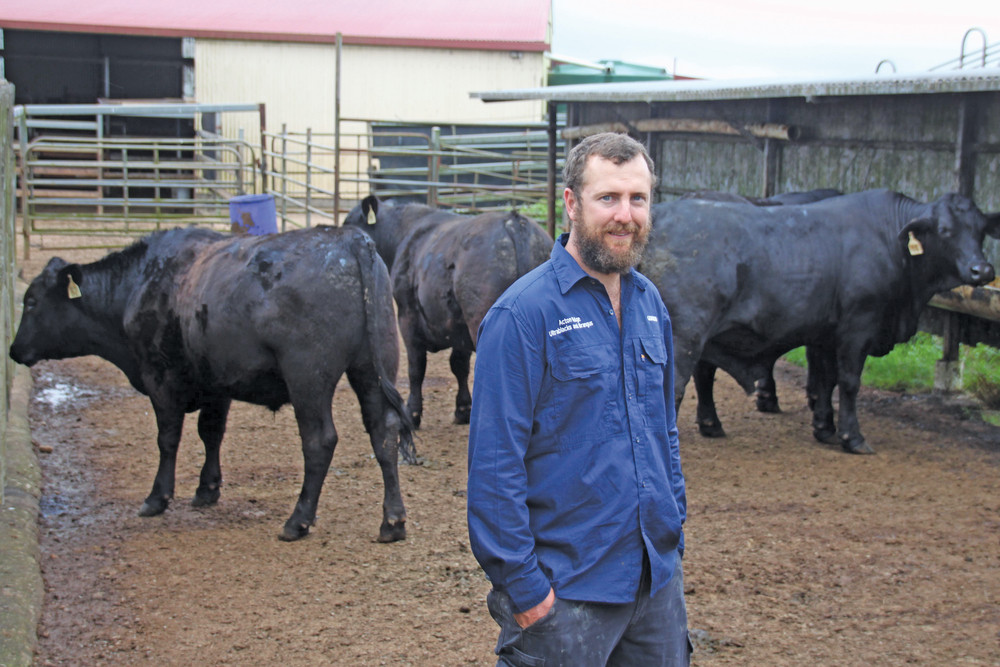On The Land
17 August, 2022
Carcase comp looks to up quality of beef
GORDON and Tabitha Carcary of “Acton Ridge Ultrablack and Brangus Stud” have entered a pen of Brangus and a pen of Ultra black steers in the inaugural Far North Queensland Grass Fed Carcase Competition and are looking forward to seeing the results.

“Win, lose or draw, the feedback from our involvement will be invaluable,” Gordon said.
“There is no better way to get this kind of feedback and no masking the results, but competing against the best producers in the north will be good for our stud.
“We put some nice cattle in, they were the best we had, most of them were milk tooth and we know they have averaged over 300kg.
“They have been fed purely on grass up until we had a few winter frosts. After that we started giving them access to some molasses to help hold their condition.
“Obviously we would be ecstatic with a win, we would tell everyone about it and it would be great for business, but primarily we are hoping to learn from our involvement, to see if we are on the right track with our genetics program.”
The couple run around 70 stud breeders, 40- 50 of which they artificially inseminate (AI) with predominantly Australian genetics.
“We run the balance, including unsuccessful AI participants, with two good bulls in single sire herds. There are a lot of good Angus genetics in Australia and we are a bit spoiled for choice,” Gordon said.
“We have made a conscious decision to look after our breeders better in the last few years, leasing a 40ha property near Malanda for them and we've noticed an improvement in their condition, in their AI conception rates and in the weaning weights of their progeny.”
Gordon said he had noticed an increase in demand for their Ultrablacks, (the product of breeding a registered Brangus to a registered Angus), in the west, because of their increased Brahman adaptability and improved weight gains.
The couple sent a total of six steers from their 81-hectare Tarzali property to the JBS Townsville abattoir, as part of a draft of 65 head of Brangus, Charbray, Brahman Cross and Droughtmaster steers and heifers from Tableland, Mt Garnet and Burdekin properties.
Engineers of the competition, Tableland and Burdekin beef producers, Bernie English and Greg Brown, said this was the first Meat Standards Australia (MSA) contest to be run in the north and it was all about eating quality and showing northern producers how well their cattle would grade under MSA.
MSA is a science-based beef (and sheep-meat) eating quality program designed to take the guesswork out of buying and cooking Australian red meat, involving all sectors of the supply chain from paddock to plate.
Factors such as the maturity (ossification) of the animal, breed content, the colour of the meat, the pH and acidity levels, marbling and the distribution of fat on the animal are all judged as key traits that can affect eating quality.
Competition entries had to be pasture-fed pens of three steers or three heifers, dressing 260-340kg and vendors were paid on that week's JBS grid.
Entries were scored out of 50 points for MSA-index eating quality; out of 40 points for meat yield and 10 points for meeting market specifications such as fat cover and weight range.
The last of the cattle were processed and graded on 26 July and results from the competition will be revealed at the Barron Valley Hotel, Atherton on Wednesday night.
“Some fascinating and surprising results have come out of the competition and there will be lessons for producers to learn from them,” Mr Brown said.
“Some of the cattle have done very well scoring over 60 in a possible MSA range of 30-80, putting them in the top 10 per cent of Australian beef.
“Ideally the competition will help lift the profile of MSA pasture-fed cattle in North Queensland. Hopefully we can attract more producers next year and it would be great to include some high-grade Brahman cattle next time to see how they compare with the cross-breeds,” he added.


